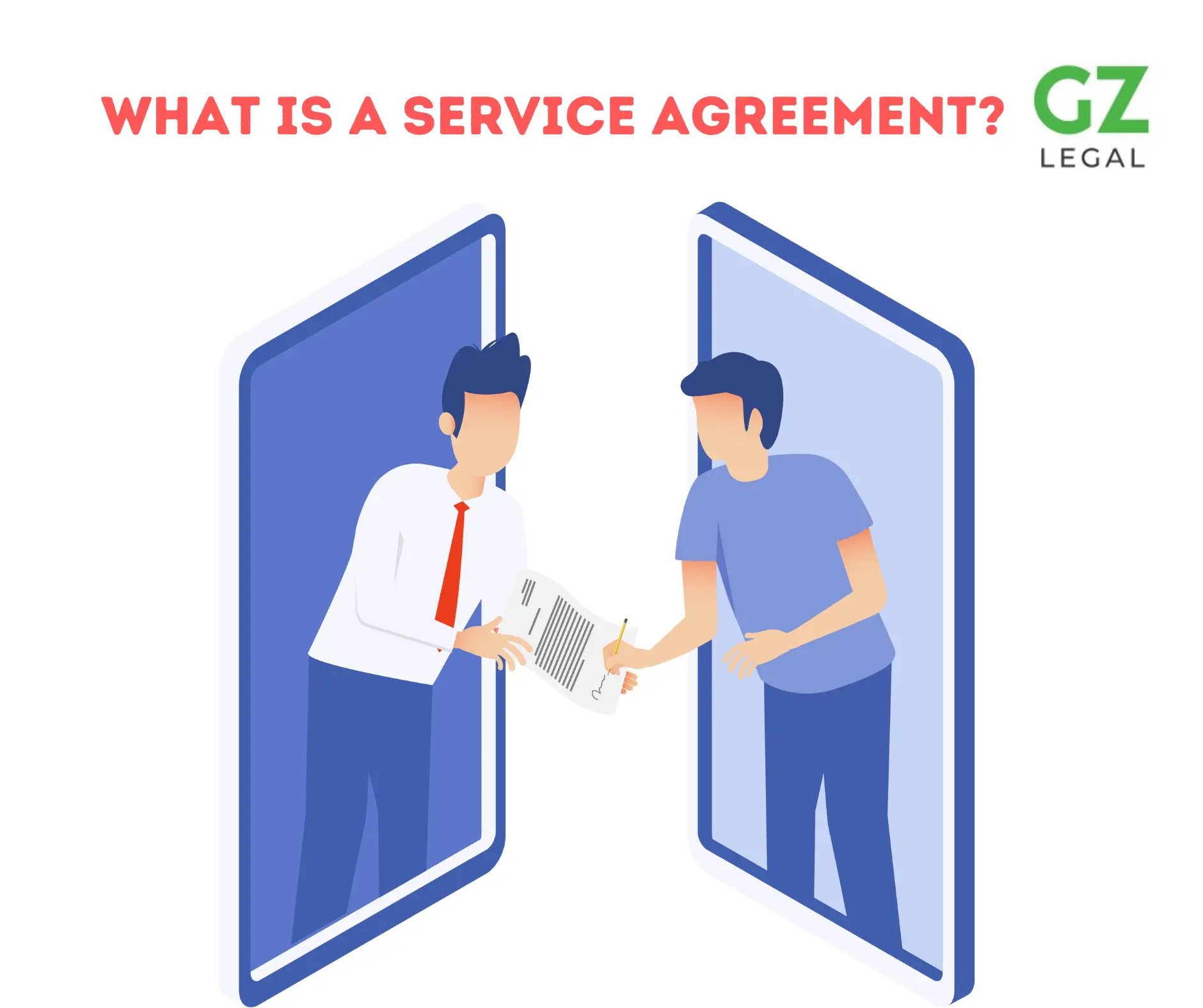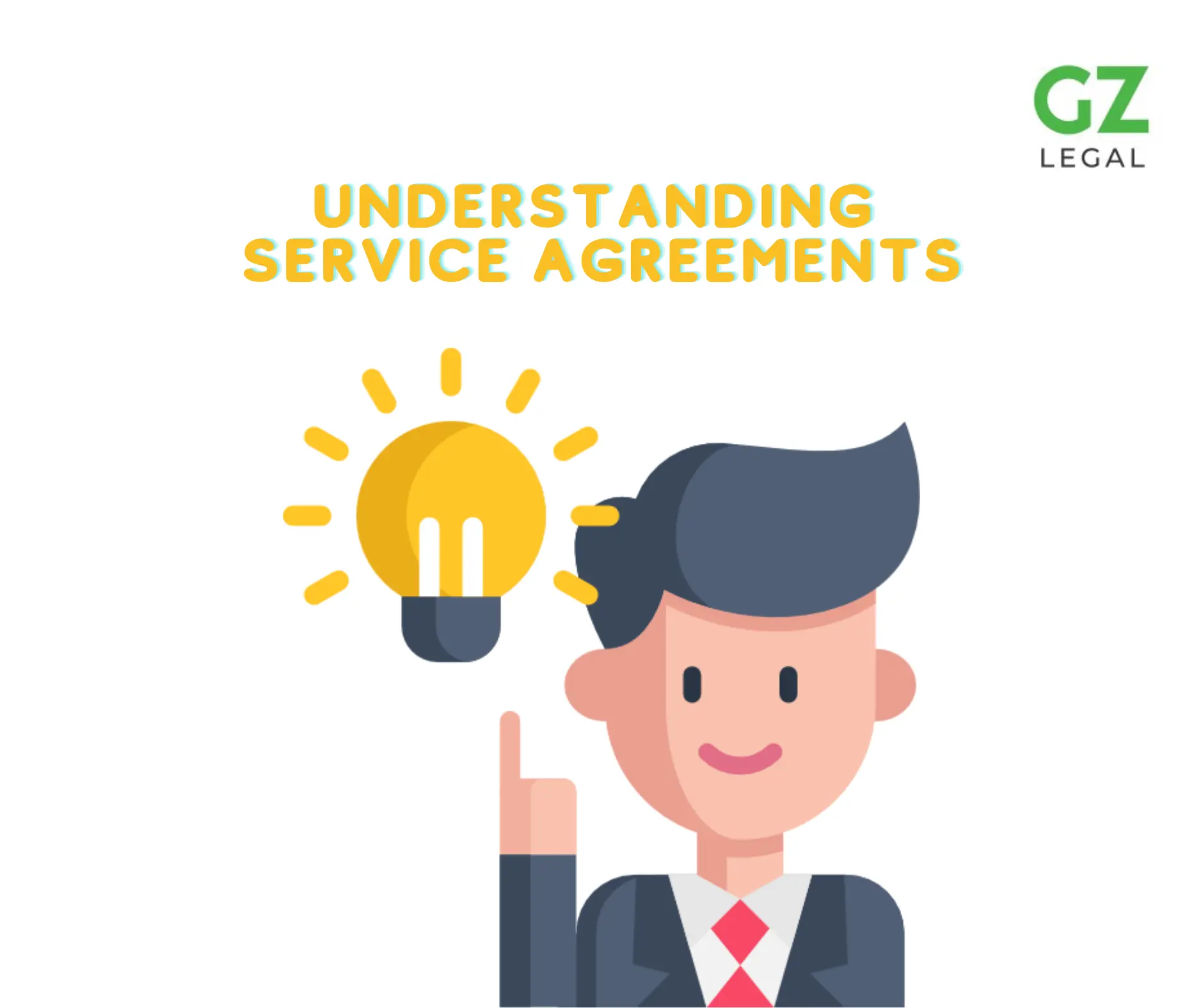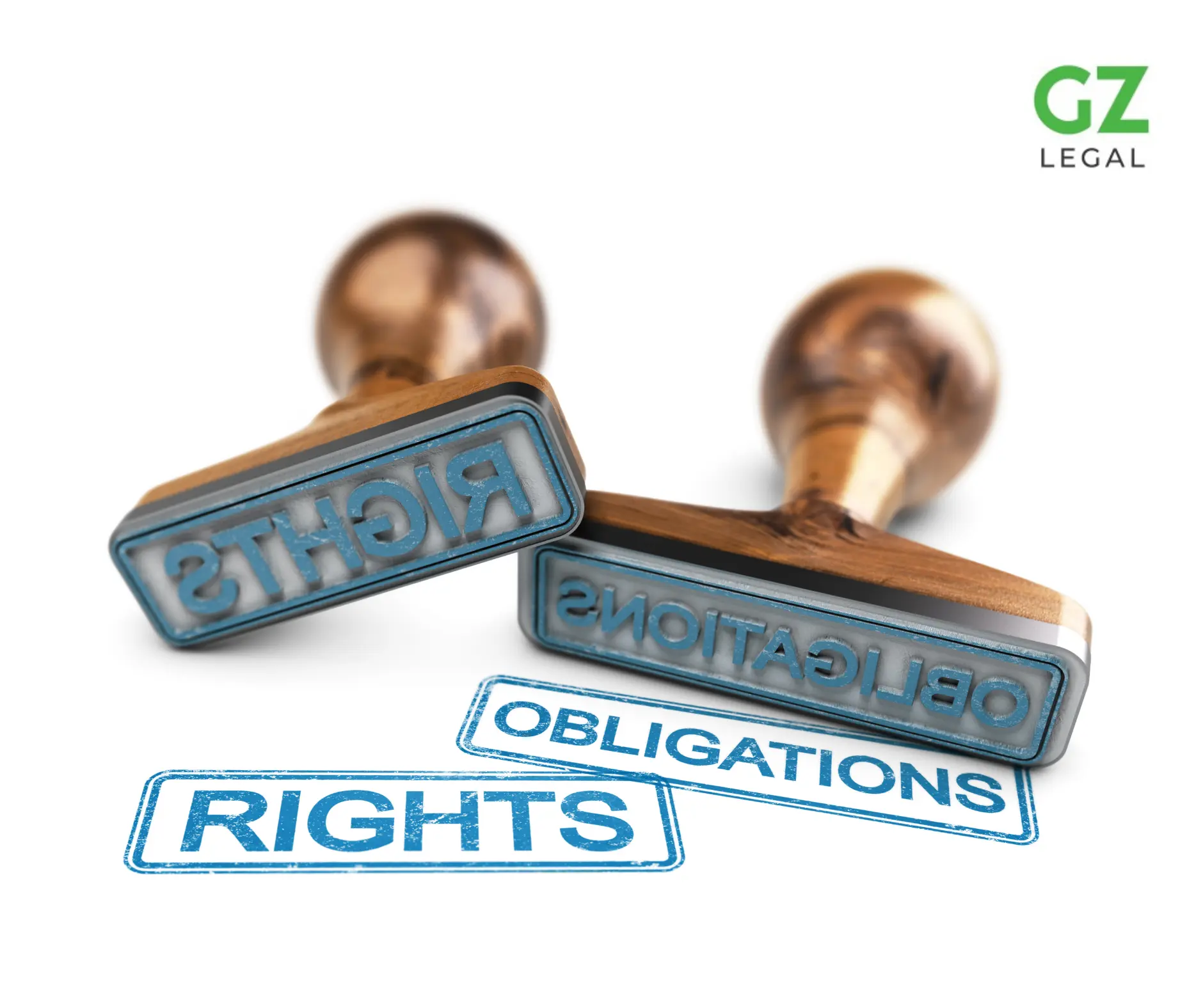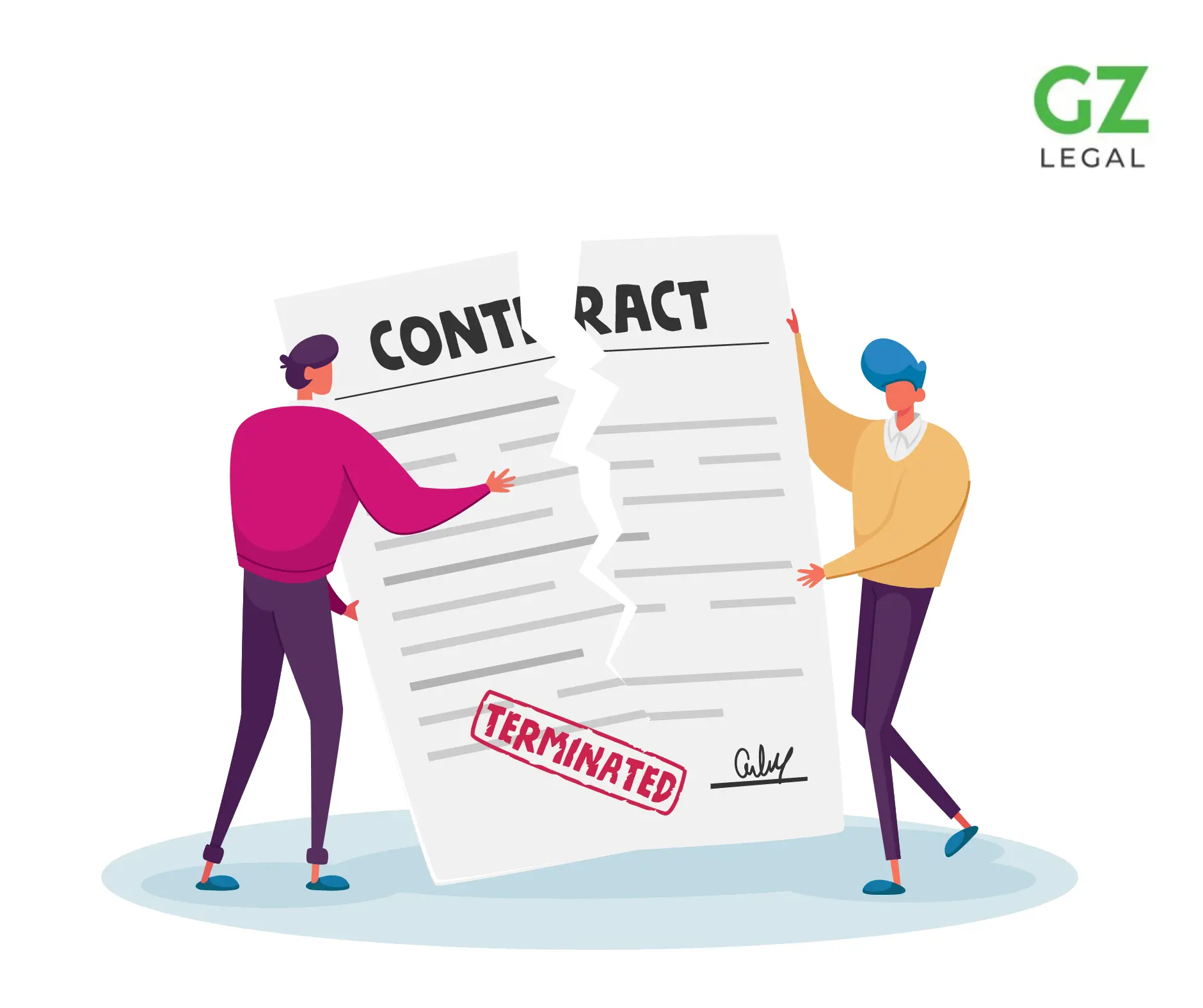Malcolm ZoppiSun Oct 15 2023
What is a Service Agreement? Essential Guide for Businesses
Service agreements are legally binding contracts that protect both the service provider and the client.
What is a Service Agreement? Essential Guide for Businesses

A service agreement is a vital component in the business world, as it outlines the terms and conditions between a service provider independent contractor and a client. These legally binding contracts offer protection for both parties involved, ensuring that there is a clear understanding of the responsibilities, rights and obligations of each party. A well-structured service agreement can help prevent misunderstandings and disputes, as well as set expectations for the quality, cost and timeframe of the services being provided.
Service agreements contain various components that define the scope of the work, payment terms, confidentiality and data protection requirements, and conditions under which the agreement may be terminated or changed. These contracts provide services that come in various forms and can be tailored to suit specific industries and needs. Often, service agreements are accompanied by service level agreements (SLAs) to define performance criteria and metrics.
Key Takeaways
- Service agreements are legally binding contracts that protect both the service provider and the client.
- These agreements contain important elements such as scope of work, payment terms, confidentiality, and termination conditions.
Understanding Service Agreements

A service agreement, also known as customer agreement or terms and conditions, is a contract between your business and your customer. It outlines the terms and conditions under which services are provided and can take various forms, such as a formal written contract, an online tick box, or attached to an invoice and agreed to by payment.
These agreements are crucial for establishing the responsibilities and expectations of both parties involved. It sets up a clear understanding of the scope of work, payment terms, delivery timelines, and quality standards expected from your company and the service provider. By having a well-crafted service agreement, your business can avoid potential disputes and misunderstandings that may arise throughout the course of the service delivery.
Service agreements are particularly important if you work in a business-to-business (B2B) setting. For instance, a master service agreement serves as a contract between a service provider and a customer, detailing the terms for their future collaborations. In these cases, services are provided according to a “Statement of Work” (SOW) that is attached to the same service agreement complies with.
When drafting a service agreement form, it is essential to cover several key aspects, including:
- Scope of services: Clearly outline the services you will provide to the customer, detailing what is included and any specific limitations or exclusions.
- Payment terms: Define how and when payments will be made, as well as any late payment penalties or discounts for early payments.
- Duration and termination: Specify the agreement’s duration, including any renewal terms, and the conditions for termination by either party.
- Confidentiality: State the measures your business will take to protect the customer’s sensitive information, as well as any obligations on the customer’s part in this regard.
- Liability and indemnity: Clarify the extent of your business’s liability in case of service failures or suboptimal results, and outline the indemnification process if applicable.
By taking the time to create a comprehensive service agreement, your business can establish professional, transparent relationships with your customers. This a client agreement not only protects both parties from potential issues but also fosters trust and long-term collaboration.
Components of a Service Agreement

Scope of the Project
When drafting a service agreement, it is important to define the scope of the project clearly. This section should outline the specific tasks, goals, and deliverables expected from the service provider. Ensure you describe the work to be completed, any materials or equipment needed, and any limitations or exclusions applicable to the agreement. Providing precise details minimises any potential misunderstandings and disputes between you and your client.
Timeline and Schedules
Another crucial aspect of a service agreement is establishing the timeline and schedules for the project. This section should include expected start dates, completion dates, and any milestones or deadlines in between. It’s also helpful to include provisions for project extensions or adjustments in case unforeseen circumstances arise. By clearly defining timelines and schedules, both you and your client will have a better understanding of when to expect deliverables and will be able to plan accordingly.
Compensation and Payments
The compensation and payments section should outline the financial terms of the agreement. Depending on the project, you may decide on an hourly rate to pay, a flat fee, or another payment structure. Be sure to include:
- Deposit requirements, if any, and when they are due
- Payment terms, including invoice frequency, payment schedule, and acceptable payment methods
- A breakdown of fees, such as expenses, late fees, or additional charges for revisions or changes to the project scope
By addressing these entities comprehensively, you will ensure a clear understanding of the financial aspects of the project and prevent any potential disputes or misunderstandings.
Rights and Obligations

Provider’s Obligations
As a service provider, it’s essential that you fulfil your obligations outlined in the service agreement. This often includes:
- Providing the agreed-upon services in a timely and professional manner.
- Maintaining confidentiality of any sensitive customer information.
- Complying with relevant laws and regulations.
If applicable:
- Ensuring that your services do not infringe on any intellectual property rights.
- Possessing all necessary licenses, permits, and certifications to perform the services effectively.
You may also be required to provide warranties related to your work, such as ensuring the quality and performance of the delivered services.
Customer’s Rights
As a customer, you have various rights under the service agreement, which can include:
- Receiving the agreed-upon services to your satisfaction.
- Requesting modifications or adjustments within the scope of the agreement.
- Withholding payment until the completion of agreed services if the provider fails to meet their obligations.
You also have the right to terminate the agreement if the service provider breaches any terms or is unable to fulfill their obligations. However, this should be done in accordance with the contract’s termination clause.
Remember, both parties must adhere to the service agreement’s terms and conditions to ensure a successful and legally compliant business relationship.
Legal Aspects

Intellectual Property
When entering into a service agreement, it is important to address intellectual property (IP) rights. You and the service provider should specify who owns any new IP created during the provision of the service. Typically, the service provider retains ownership of their pre-existing IP, while new IP developed during the project belongs to the customer. Ensure that the agreement outlines the rights and limitations regarding the use and licensing of the IP involved for both parties.
Liability and Insurance
In a service agreement, it is vital to address liability for any risks that may arise during the service contract. Liability clauses cover issues such as negligence, breaches of contract, damage to property, and personal injuries. The agreement should specify how the liability is limited, often by a monetary cap or exclusion of particular damages. Additionally, it is common practice for both parties to maintain relevant insurance policies, like public liability insurance or professional indemnity insurance. By having these policies in place, the risks and potential financial burdens are minimised.
Dispute Resolution
Dispute resolution mechanisms should be included in the service agreement to handle any disagreements or issues that may arise between you and the service provider. By outlining a clear process for resolving disputes, both parties can save time, money, and stress in the event of a disagreement.
Common dispute resolution methods include:
- Mediation: A neutral third party facilitates a discussion between the parties to reach a mutually beneficial resolution.
- Arbitration: A neutral third party hears both sides of the dispute and makes a binding decision on the matter.
- Litigation: If all other methods fail, disputes may result in lawsuits where the issue is settled in court.
Including these three sub-sections in your service providers’ agreement will help ensure that vital legal aspects, such as intellectual property rights, liability and insurance, and dispute resolution, are clearly addressed and comprehensively covered. As a result, you can confidently move forward with your service provider, minimising the potential for misunderstandings and legal disputes.
Confidentiality and Data Protection

Confidentiality Clauses
Confidentiality clauses are essential for protecting sensitive information when entering into a service agreement. These clauses outline the specific details of the information that should remain confidential between the parties. They also clarify any exceptions such as information that is already public knowledge or obtained independently by a third party. It’s crucial to ensure that you clearly define the scope and duration of your confidentiality clause obligations in your service agreement, as this will prevent any potential miscommunication and mitigate the risk of unauthorised disclosure.
Data Protection Regulations
In the context of service agreements and business contracts, data protection regulations play an important role, especially when personal data is being processed on behalf of customers or clients. In the UK, the Data Protection Act 2018 implements the General Data Protection Regulation (GDPR) and sets strict rules for handling personal data. As part of your agreement, you should include provisions that align with these regulations, such as data processing practices, the purpose and legal basis for processing, and the rights of data subjects.
When entering into a service agreement, it is essential to discuss data sharing practices between parties. If personal data is to be exchanged in the course of the services agreement itself, a data sharing clause should be included. This clause can help establish the roles and responsibilities of each party as independent data controllers and outline the measures taken to ensure the security and integrity of personal data.
In summary, incorporating confidentiality clauses and adhering to data protection regulations is vital when creating a service agreement. By addressing these key aspects, you can protect sensitive information, maintain compliance with data protection laws, and foster trust between parties involved.
Termination and Changes

Termination Clauses
In a service agreement, termination clauses are crucial in outlining the circumstances under which you, as a customer or service provider, may end the contract. These clauses frequently cover scenarios such as breach of contract, non-performance, and insolvency limited liability company. Commonly, a right of termination is included, which arises only after the defaulting party has failed to remedy its breach within a given period.
To effectively terminate a service agreement, it’s important to provide written notice to the other party, clearly stating the reason for termination and adhering to any notice periods stated in the contract. In some cases, service agreements may include a payment in lieu provision, for example, allowing you to terminate the contract instantly by making a payment in place of serving the required notice period.
Change Management
As your business evolves, it’s likely that the terms of your service agreement may need to be updated or varied. The process of modifying the terms will depend on factors such as the agreement of the other party, existing contractual terms, and the relevant law applicable to the contract.
To implement changes in a service agreement, consider taking the following steps:
- Review the existing terms and assess the desired changes
- Communicate with the other party to discuss and negotiate new terms
- Reach a mutual agreement, ensuring both parties’ interests are protected
- Document the changes, either through a written amendment to the service agreement or by creating a new contract incorporating the updated terms
Keep in mind that clear communication and written records of the changes are essential to avoid misunderstandings or disputes in the future.
Frequently Asked Questions
Is a service agreement the same as a contract?
Yes, a service agreement is a type of contract. It sets out the terms and conditions for service between a customer and a service provider. Both written and verbal service agreements are legally binding, but it is always a good idea to have a written agreement to avoid potential disputes.
Why do you need a service agreement?
You need a service agreement to establish a clear understanding between the customer and service provider, outlining the scope of the services provided, the duration of the contract, the payment terms, and any warranties or guarantees. It helps to protect the interests of both parties, ensuring that the customer receives the agreed-upon services and that the service provider receives payment as per the agreed terms.
Are service agreements legally binding?
Yes, service agreements are a legally binding contract, provided they contain all the necessary elements of a contract, such as offer, acceptance, consideration, and a clear intention to create a legally binding relationship. Ensuring that your service agreement is written and contains all the essential clauses increases its enforceability.
Find out more!
If you want to read more in this subject area, you might find some of our other blogs interesting:
- Step-by-Step Guide on How to Transfer Shares to a Holding Company
- Breach of Settlement Agreement: Consequences and Remedies Explained
- Who Gets the Money When a Company is Sold?
- What is a Counter Offer in Contract Law? Explained Simply and Clearly
- Understanding the Costs: How Much Do Injunctions Cost in the UK?
Disclaimer: This document has been prepared for informational purposes only and should not be construed as legal or financial advice. You should always seek independent professional advice and not rely on the content of this document as every individual circumstance is unique. Additionally, this document is not intended to prejudge the legal, financial or tax position of any person.